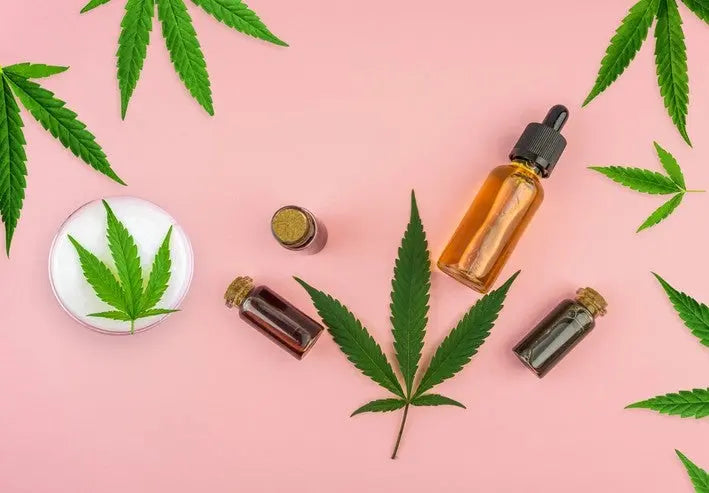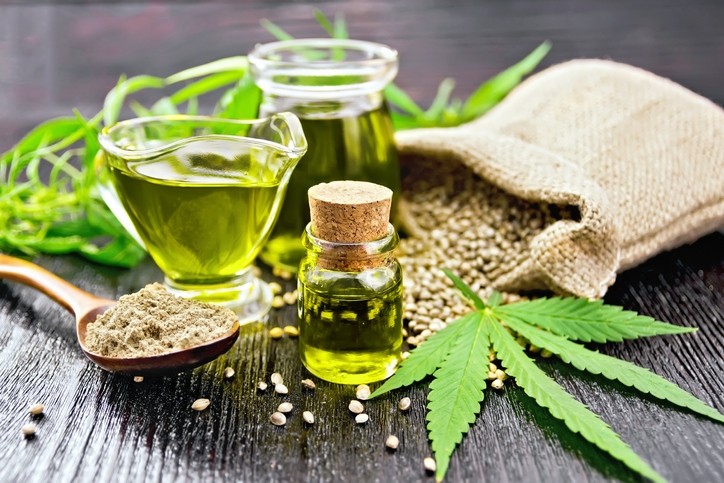

Hemp Oil Showdown: CBD Oil vs Hemp Seed Oil - Unraveling Nature's Secret Potions
In recent years, the health and wellness industry has witnessed an explosion of interest in natural remedies, and two products that have gained significant popularity are CBD oil and hemp seed oil. While both are derived from the hemp plant, they serve different purposes and offer distinct health benefits. In this blog post, we will explore the differences between CBD oil and hemp seed oil, as well as their various uses and advantages.

CBD Oil:
CBD, short for cannabidiol, is a prominent cannabinoid found in the hemp plant. Unlike its cousin THC (tetrahydrocannabinol), CBD does not cause psychoactive effects, meaning it won't get you high. CBD oil is created by extracting CBD from the hemp plant using various methods, such as CO2 extraction or solvent extraction. The resulting oil typically contains a high concentration of CBD along with other beneficial compounds like terpenes and flavonoids.
Benefits of CBD Oil:
- Pain Relief: CBD oil has shown promise in alleviating chronic pain by interacting with the endocannabinoid system, which plays a role in pain perception.
- Anxiety and Stress Reduction: Many users have reported experiencing reduced anxiety and improved mood with the use of CBD oil.
- Sleep Improvement: CBD oil may help improve sleep quality and address issues like insomnia.
- Anti-Inflammatory Properties: CBD's anti-inflammatory effects make it beneficial for managing conditions like arthritis and inflammation-related ailments.
- Neuroprotective Properties: Studies suggest that CBD might have neuroprotective properties, which could be relevant in treating conditions like epilepsy and neurodegenerative disorders.
Uses of CBD Oil:
- Oral Consumption: CBD oil can be consumed orally by placing a few drops under the tongue, where it's absorbed into the bloodstream quickly.
- Topical Application: CBD-infused creams and balms can be applied directly to the skin to target localized pain and inflammation.
- Edibles and Beverages: CBD oil can be incorporated into various edibles like gummies or added to beverages for easy consumption.

Hemp Seed Oil:
Hemp seed oil, also known as hemp oil, is derived from the seeds of the hemp plant. Unlike CBD oil, hemp seed oil does not contain any significant cannabinoids like CBD or THC. Instead, it is rich in essential fatty acids, including omega-3 and omega-6, as well as vitamins and minerals.
Benefits of Hemp Seed Oil:
- Nutritional Value: Hemp seed oil is a highly nutritious oil that provides essential fatty acids in an optimal ratio for human consumption.
- Skin Health: The fatty acids in hemp seed oil help moisturize the skin and support overall skin health.
- Heart Health: The omega-3 and omega-6 fatty acids in hemp seed oil have been associated with promoting cardiovascular health.
- Immune System Support: Hemp seed oil contains antioxidants, such as vitamin E, which can help support the immune system.
Uses of Hemp Seed Oil:
- Culinary Use: Hemp seed oil has a pleasant nutty flavor and can be used in salad dressings, dips, and smoothies.
- Skincare Products: Due to its moisturizing properties, hemp seed oil is often used in skincare products like lotions and moisturizers.
- Hair Care: Hemp seed oil can be used as a hair treatment to promote healthier and shinier hair.
In conclusion, CBD oil and hemp seed oil are two distinct products with different compositions and benefits. CBD oil is prized for its potential therapeutic effects on pain, anxiety, and inflammation, while hemp seed oil is valued for its nutritional content and skincare properties. Both oils can be valuable additions to a wellness routine, but it's essential to understand their differences to make an informed choice based on individual needs and preferences. As with any supplement, it's recommended to consult with a healthcare professional before incorporating CBD oil or hemp seed oil into your daily regimen.
https://www.cosmeticsdesign-europe.com/Article/2020/03/23/CBD-beauty-trends-2020-feature-UK-hemp-and-medical-cosmetics


